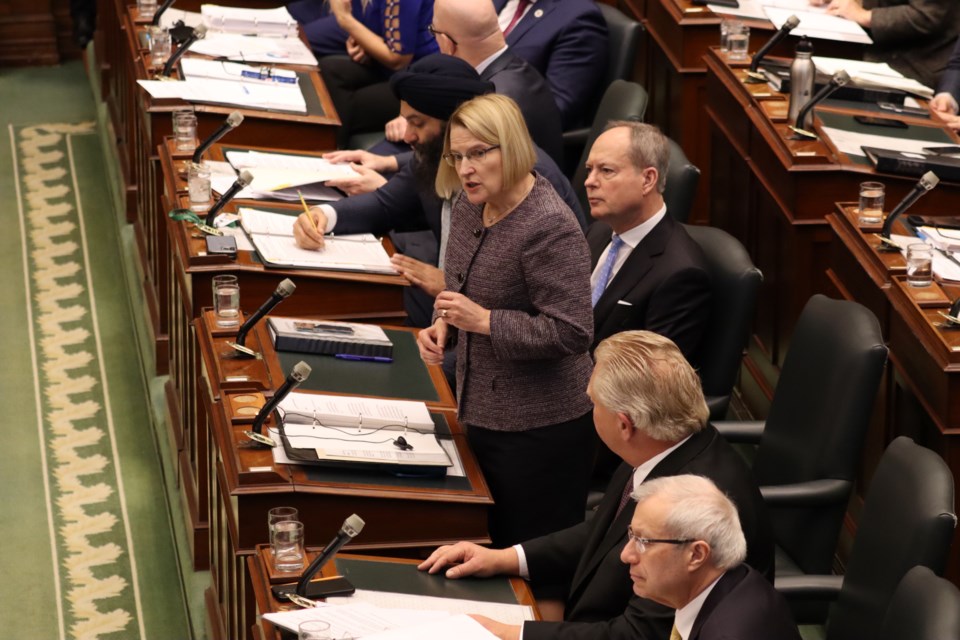EDITOR’S NOTE: This article originally appeared on The Trillium, a new Village Media website devoted exclusively to covering provincial politics at Queen’s Park.
The Ontario government is moving forward with its plan to move more surgical procedures out of hospitals and into private facilities run by for-profit and non-profit providers.
Opposition parties and unions are raising alarm that expanding the role of for-profit providers will divert public funds from patient care to profits, and divert staff away from the public sector as well.
Health Minister Sylvia Jones tabled legislation Tuesday that she says will “put in place significant guardrails” as the province plans to move surgeries for hip and knee replacements out of public hospitals, which it has promised to do by 2024 while protecting patients and the public health-care system.
That did not satisfy the official Opposition.
“These guardrails that the minister of health is talking about do not exist,” said NDP leader Marit Stiles.
The first step in the province’s plan, which is already in progress, was expanding out-of-hospital cataract procedures. A facility in Windsor began offering those procedures at an out-of-hospital site during the pandemic. In Ottawa, the for-profit Herzig Eye Institute has been given a license to perform 5,000 insured cataract surgeries annually.
The new legislation, if passed, would also allow an expansion of MRI and CT scans and enable Ontario to recognize the credentials of health-care workers from other provinces and territories, the government said.
The major change the legislation will bring, if passed, is a process by which the operators of the private centres wishing to perform these surgical procedures can be licensed.
This includes a requirement that they consult with local hospitals and submit a plan to the government for their health human resources that ensures they won’t strip resources from the public system, said Jones.
That plan must specifically address staffing for anesthesia delivery, “given specific concerns about the global availability of these professionals,” the government said in a press release.
Critics have been especially concerned the bill will strip the public system of staff, and dismissed the licensing requirement as inadequate.
“We have a crisis, but the crisis in health care is largely a staffing crisis,” said Stiles. Her party’s solution would be to pay health-care workers more and add shifts to the public system, she said.
Liberal health critic Adil Shamji, an emergency physician, echoed those concerns.
Neither opposition party opposes moving some surgeries from hospitals to independent centres, but both object to allowing for-profit companies to run them.
Shamji said his party would be looking for the bill to ensure that health care remains “about patient health, not private wealth.”
That would mean the facilities would have to be operated on a not-for-profit basis and be affiliated with hospitals. The government bill includes for-profit clinics, but it does ensure physicians who work in them have privileges to work in a local hospital.
The same critics are concerned about upselling — where health-care providers talk patients into accepting things not covered by OHIP so they end up paying out of pocket — and said the bill does not prevent the practice.
Jones said the plan is “consistent with the Canada Health Act.”
“To be clear, Ontarians will continue to pay with their OHIP card, never their credit card. Under Premier Ford, that will never change,” she said.
Again, the opposition did not believe her.
“I believe and we believe in the NDP, that he's pushing Ontario toward a two-tier health-care system where the wealthy will be able to pay out of pocket to get faster, better care, and everybody else will be left waiting,” said Stiles. “The Doug Ford Conservatives are set on opening up our public health care to private shareholders and they're ignoring the public sector solutions that are out there.”
